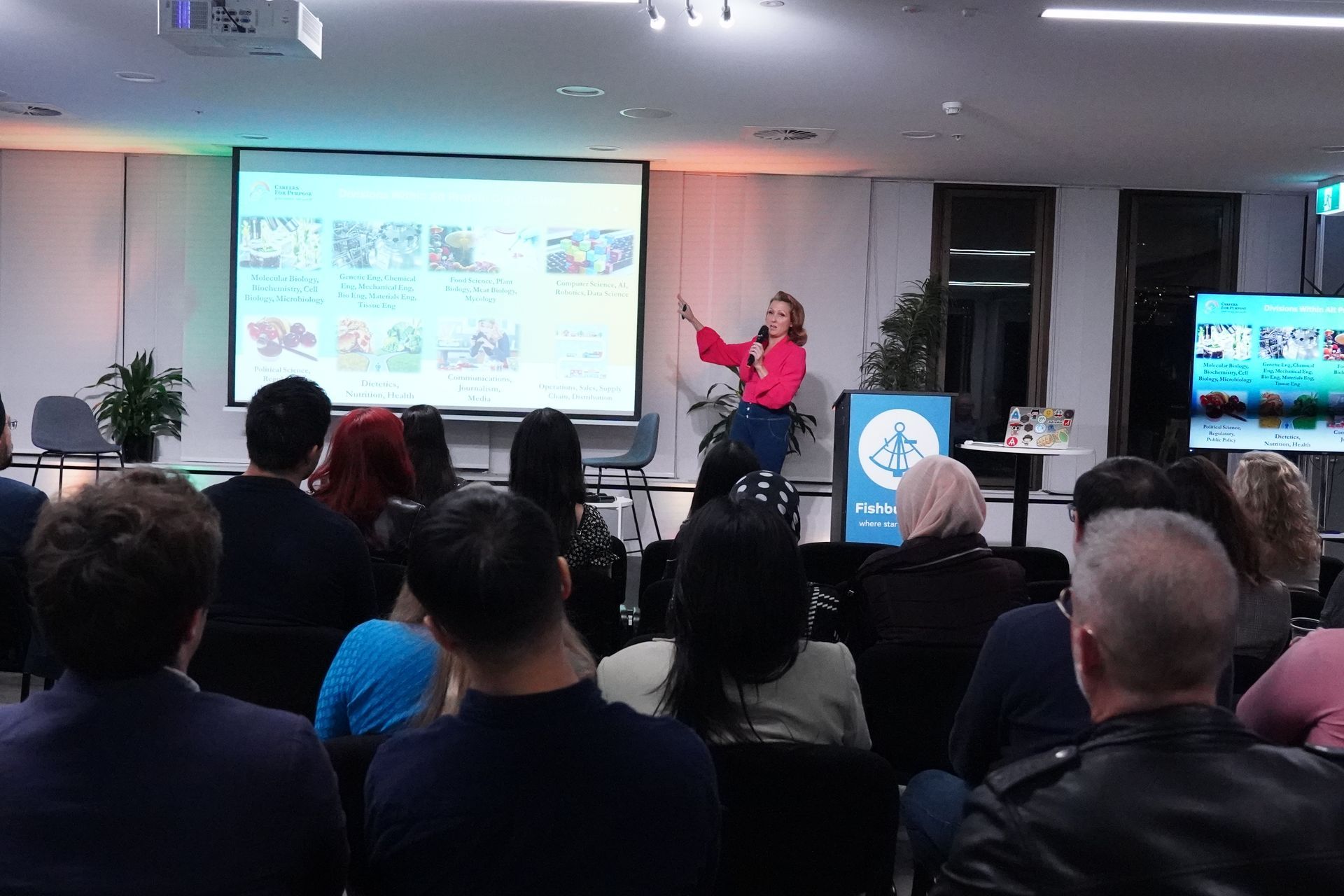Future Super Member Spotlight
Our Founder & Director of Opportunities, Teresa Romanovsky, was featured in Future Super's monthly member spotlight. Click the link to see the video interview and read on to hear what inspired Teresa to set up Careers For Purpose and what continues to drive her towards her passion to support a kinder world.

After nearly 25 years in recruitment, helping Australians in their career pursuits, Teresa faced an unexpected twist in her professional life when she faced redundancy in 2020. Rather than succumbing to career uncertainty, this pivotal moment served as the inspiration for her to venture into entrepreneurship, giving rise to her own agency, Careers For Purpose.
CFP is a recruitment agency with a difference, Teresa now spends her days playing planet-saving matchmaker, connecting values-driven employees with purposeful employers on a mission to fight climate change and social injustice, and change the world for the better. An activist at heart, Teresa is also a passionate vegan, recently celebrating 10 years since making the switch.
“For me, it’s more than a dietary choice, my commitment to a plant-based lifestyle serves as the cornerstone of my ethical and climate-conscious actions. My impact on the planet extends to various aspects of daily life – from packaging and plastic waste to fast fashion and transportation. With a profound understanding of the interconnectedness of our choices, I’m on a mission to make mindful decisions that contribute to a sustainable and harmonious world.”
3 Questions with Teresa
1.What gets you out of bed each day?
As citizens of a rich country, we must lead the way in demanding higher standards across our supply chains, be technologically innovative and step up to solve global problems where others can't. I like to think I play a part, albeit a small one, in making that happen. Through my personal consumer choices, and my business activities, I feel I am helping drive a better world, and the more of us that do that will collectively have a massive impact on healing our planet for future generations.
2. How are you contributing to our planet beyond your super?
By not contributing to climate change through animal agriculture, by conscious consumerism wherever practical, by being a donor and volunteer to various charities, by being an active member of the Animal Justice Party advocating for legislative change to improve the lives of animals and people and to tackle climate change, and finally, the ethos of my business is to be a planet-saving matchmaker - connecting values driven job seekers to impact and purpose-driven employers, this includes profit with purpose companies as well as not for profits.
3. What people-powered movement is making a difference in 2023?
The Switch gives our members the chance to put the spotlight on people-powered movements and causes that matter to them. Teresa has chosen WWF Australia.
Forests, covering 31% of the planet, play a crucial role in maintaining global well-being. Despite their significance, the alarming statistics of global deforestation in 2022, reaching 16.3 million acres with primary tropical forest loss at 10.1 million acres, underscore the urgent need for conservation efforts.
World Wildlife Fund Australia stands at the forefront of this battle, actively combating land clearing and deforestation. Through strategic advocacy and collaboration with governments, they work to strengthen laws and invest in on-the-ground conservation projects, aiming to curb deforestation, protect wildlife habitats, and contribute to Australia's ecosystem conservation.
The repercussions of deforestation are far-reaching, impacting wildlife like koalas and greater gliders, both now listed as endangered. It also leads to soil erosion, and sediment flow into waterways, and detrimentally affects the Great Barrier Reef. Moreover, deforestation contributes significantly to greenhouse gas emissions.
Recognising the urgency of the situation, WWF highlights in its 2023 Forest Pathways report, a blueprint for saving our forests, the necessary steps for countries to take, such as ending forest-harming investments, reforming global trade rules, recognising Indigenous land rights, and transitioning to nature-based economies.
Additionally, WWF Australia invests in:
· On-the-ground conservation projects
· Promoting sustainable land management practices
· Engaging local communities in reforestation initiatives
This further underscores their commitment to combatting deforestation and fostering the preservation of Australia's diverse ecosystems.



